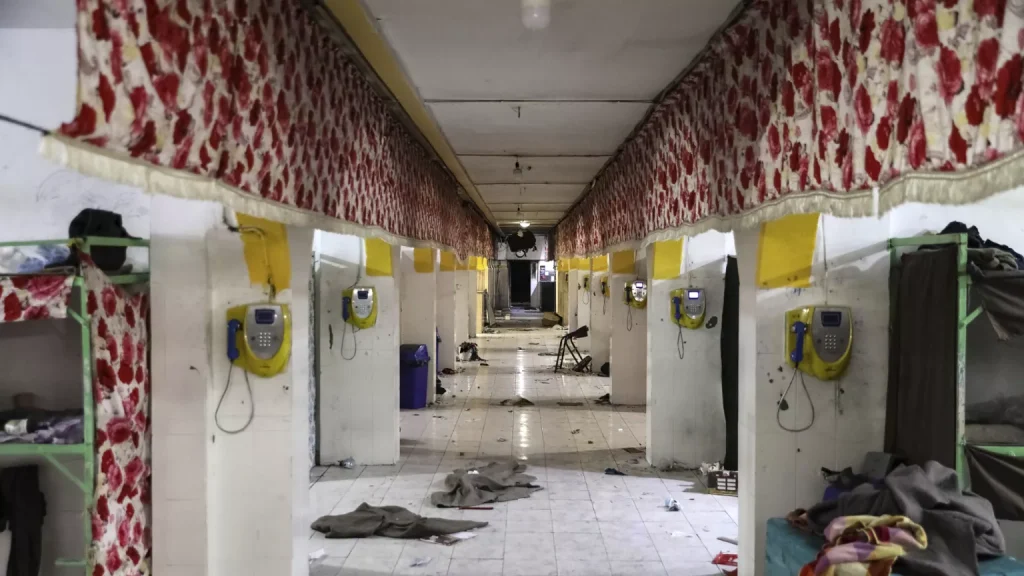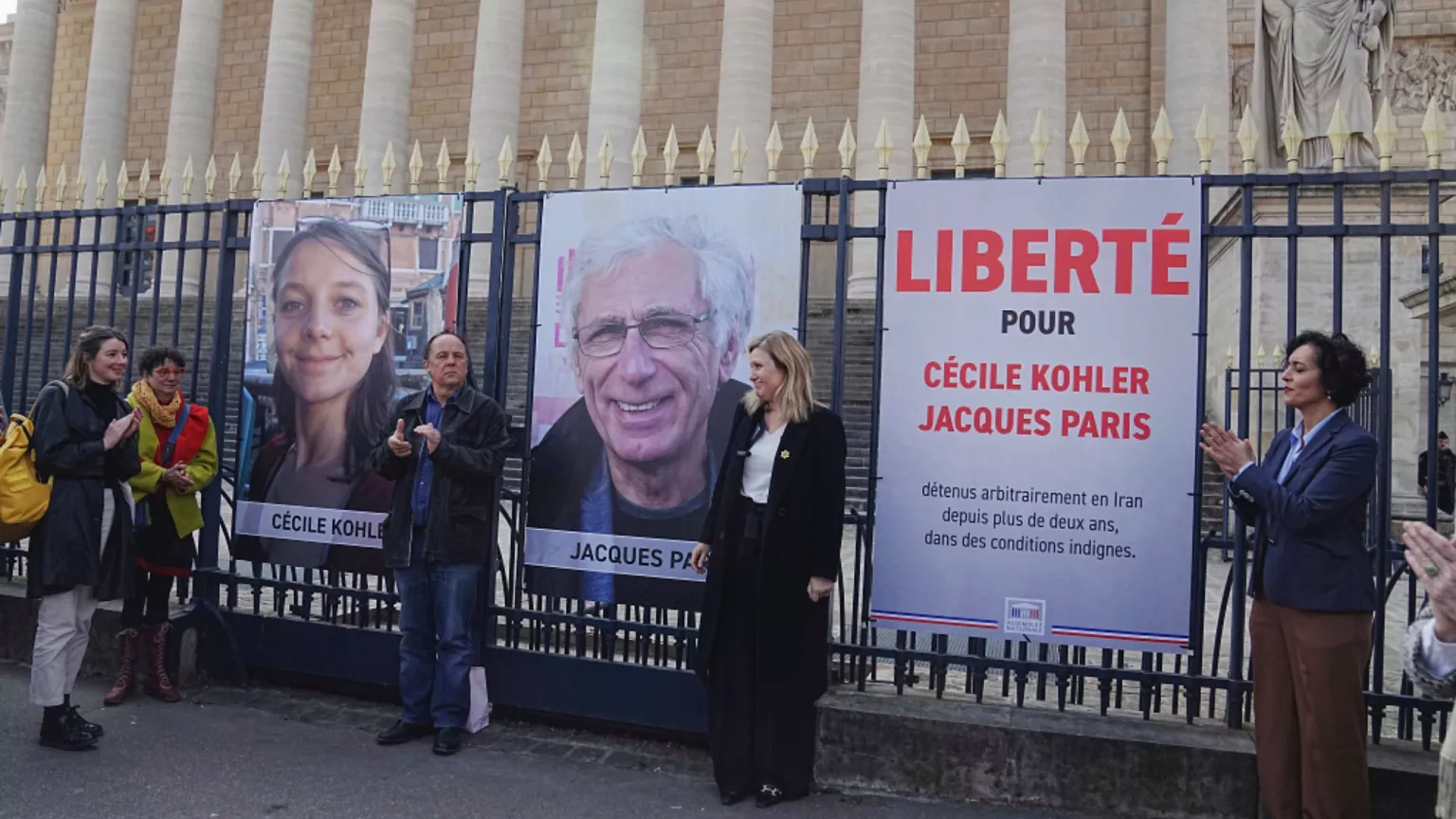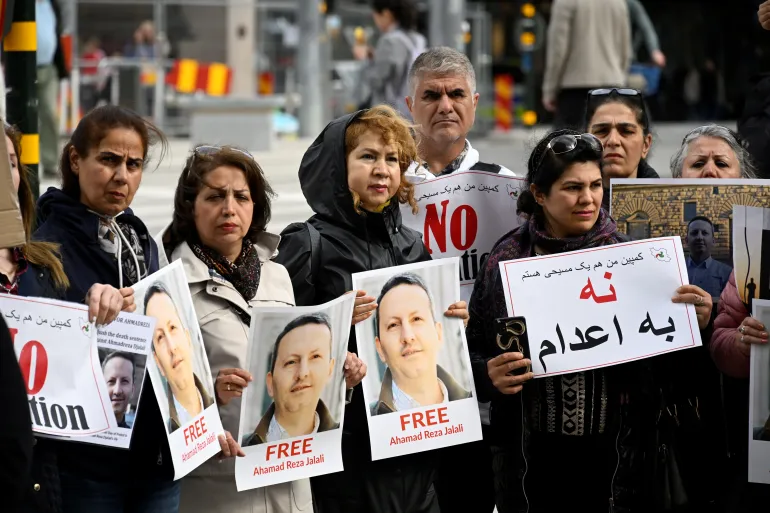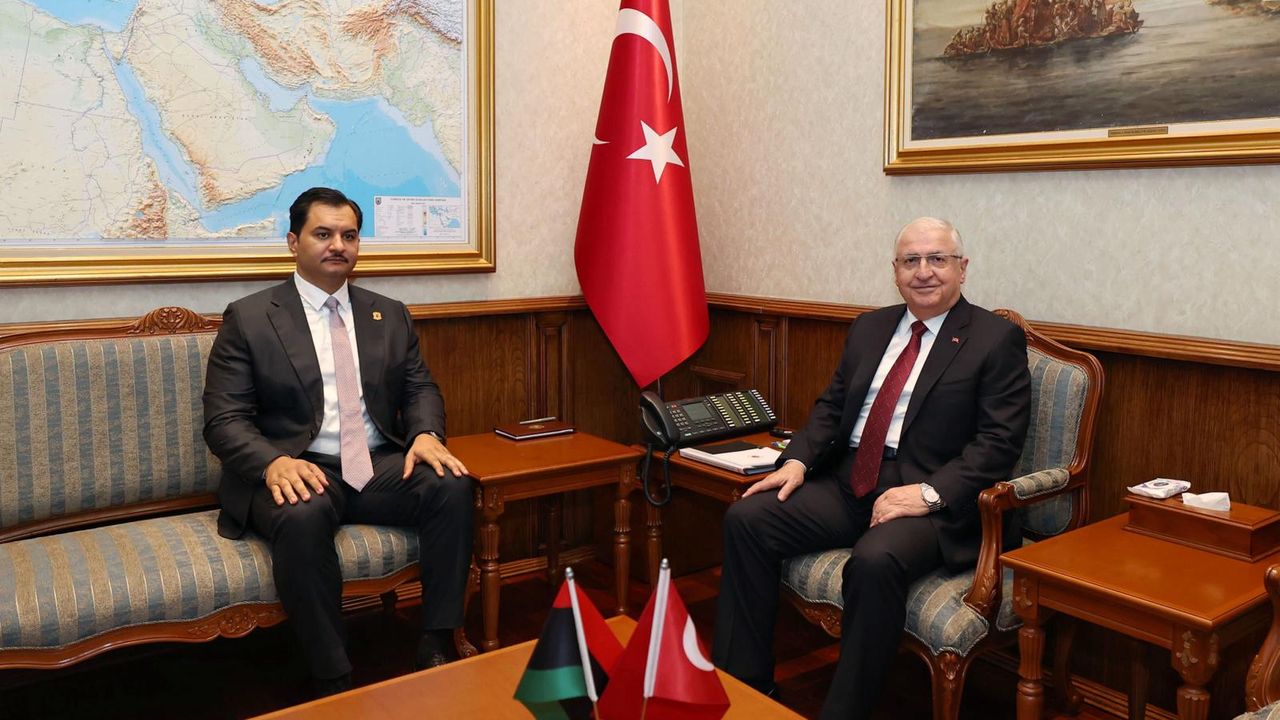Europeans imprisoned in Iran: Hostages or state threats?

European nationals still head to Iran for tourism, work and research – but when two French citizens faced new espionage charges, the question emerged: What happens when travel becomes a political trap? If Tehran increasingly uses ordinary Europeans as diplomatic leverage, how deep does the strategy go – and how should Europe reconsider its response?
Two French nationals, Cécile Kohler and Jacques Paris, were charged for allegedly “Spying” for Israel, France 24 via AFP reported on July 2nd. But Iran has detained multiple European nationals in recent years – around 20 in total. Held often without warning, formal charges, or transparent legal proceedings. These arrests, affecting people who range from tourists to businesspeople, frequently follow a now-familiar pattern: sudden disappearance, prolonged detention, and accusations of espionage or national security threats.
Iran currently holds detainees, including people from France, Germany, Austria, Sweden, and the United Kingdom. Many of these individuals face long prison sentences or remain in detention without trial. Along with the increasing number of European citizens imprisoned in Iran, the EU has been growing increasingly concerned that individuals “continue to be held in degrading conditions with no chance of a fair trial”, on “spurious grounds.”
Among the most high-profile cases are those of French nationals Cécile Kohler and Jacques Paris, arrested in 2022 while visiting Iran. Authorities later accused them of operating as spies. Iranian state media released footage purportedly showing confessions, but the French government and their families categorically rejected the legitimacy of the charges. Iran formally charged them with espionage in mid-2025, and they remain imprisoned without public access to legal representation or a fair trial.
Continue to be held in degrading conditions with no chance of a fair trial
Another case that drew attention recently is that of Olivier Grondeau, a French logistics manager arrested in 2022. Iranian authorities never formally charged him or brought him to trial. He spent more than three years in prison before being released in June 2025. Until his release, his case received little public attention, and his detention remained largely unknown outside government channels.
In a more recent development, Iranian intelligence forces detained an unnamed European national, accusing them of spying “in sensitive areas” of the country. The Iranian judiciary has not released the individual’s name, nationality, or any legal details. This arrest, reported by Euronews on June 21st, heightened diplomatic concerns, with European officials fearing a widening pattern of silent detentions.
Family members and advocacy organisations have described growing distress and confusion as more cases emerge. Supporters often face restricted communication, limited consular access, and an opaque legal system. Al-Monitor reported on June 18th that many relatives feel powerless, uncertain over how to help, and afraid that public pressure might backfire. In several cases, families remained silent for months or years, hoping private diplomacy might yield results.
Across these cases, a pattern has become clear. Iran often targets foreign nationals with vague allegations, detains them without a transparent legal process, and holds them in conditions that violate international norms. These detainees frequently become pawns in larger political games, caught between diplomatic silence and the state’s strategic interests.
Strategy
Iran’s detentions of European nationals seemingly do not occur in isolation, they follow a geopolitical pattern. These arrests often emerge during periods of diplomatic deadlock or rising international pressure. The detentions themselves may appear incidental, but the timing and circumstances of the imprisonments suggest a deeper political calculus is at play.
Unlike typical criminal proceedings, these cases unfold through a justice system tightly controlled by Iran’s security apparatus. The Islamic Revolutionary Guard Corps (IRGC), a powerful military and political force, reportedly orchestrates these arrests under the pretext of national security. According to the Associated Press on April 14th, several of Iran’s foreign detainees face trial – or indefinite detention – through secretive proceedings with no access to independent counsel or international oversight.
French Foreign Minister Jean-Noël Barrot called Iran’s imprisonment of Europeans “a state policy.” He added: “The conditions in which some of our French and European compatriots are being detained are disgraceful and comparable to torture under international law.”
These arrests frequently coincide with international negotiations. When Iran faces sanctions, nuclear restrictions, or political isolation, foreign nationals become tools for creating leverage. The lack of transparency surrounding the detainees’ charges, often framed broadly as espionage enables Iran to maintain plausible deniability.
You become a human who has been stocked away indefinitely because one government is seeking to exert pressure on another
In many cases, the release of a foreign prisoner aligns with diplomatic developments. Olivier Grondeau’s quiet release after three years, without formal charges or trial, occurred just as France attempted to renew discussions on the de-escalation of Iran’s nuclear programme. As the Associated Press reported on March 20th, his return to France happened on the basis of no public agreement, an outcome that reinforces suspicions of a silent exchange.
After his release, Grondeau said: “You become a human who has been stocked away indefinitely because one government is seeking to exert pressure on another.”

Tehran’s control over the process allows it to manipulate both the timing and outcome. The longer a detainee remains in custody, the more valuable they become, not for what they know, but for what their home country might eventually offer. The impenetrability of Iran’s judiciary, paired with the state’s ability to delay, bargain, and shift narratives, creates the conditions for a slow, coercive diplomacy.
Rather than launching formal demands or public negotiations, Iran signals its willingness to trade through unofficial channels. This ambiguity serves a dual purpose: it reduces international backlash and leaves European governments feeling unsure of how or when to escalate their response. While Tehran publicly denies engaging in hostage diplomacy, its behaviour increasingly follows the logic of it. This is a political theatre with real human costs.
Europe’s dilemma
So European governments have to choose their steps carefully. They consistently respond cautiously to the detention of their nationals in Iran, often relying on private diplomacy rather than public condemnation. While some governments have issued formal protests, many avoid direct confrontation, fearing that public pressure could worsen detainees’ conditions or complicate negotiations.
France, for example, has repeatedly condemned Iran’s actions. In response to the ongoing detention of several French citizens, including Cécile Kohler and Jacques Paris, the French President Emmanuel Macron described the situation as “a provocation against France and unacceptable choice of aggression.” Officials have insisted that the detainees face baseless charges and that Iran is using them for political ends.
Despite these strong statements, European states have failed to mount a coordinated response. According to Al-Monitor on June 18th, European countries typically engage with Iran without a unified EU strategy. This fragmented approach weakens collective diplomatic pressure and leaves detainees vulnerable to backroom negotiations. Analysts noted that this lack of cohesion allows Iran to exploit divisions between European governments.
Euronews reported on June 21st growing frustration within the European Parliament, where some members have called for a firmer stance. Proposals have included targeted sanctions and the designation of Iran’s Islamic Revolutionary Guard Corps (IRGC) as a terrorist organisation. So far, however, EU member states have not adopted these measures, and political momentum behind them remains limited. This hesitancy has left families in limbo.
Without a consistent or coordinated European approach, Iran continues to benefit from a high-leverage strategy. The lack of public accountability or diplomatic consequences enables further arrests, while detainees remain trapped between a legal limbo and geopolitical bargaining.
The conditions in which some of our French and European compatriots are being detained are disgraceful and comparable to torture under international law
What’s next?
If Iran’s pattern of detaining European nationals is indeed a deliberate strategy designed to gain leverage through calculated arrests, it raises urgent questions about how Europe should respond. From on optimistic point of view, the individuals caught in this web are not spies or agents; they are educators, tourists, or professionals.
Through calculated detentions, Iran has transformed its prison system into an extension of its diplomatic arsenal. The detentions project internal strength, send external warnings, and create a stockpile of bargaining tools for future negotiations.

European governments, wary of jeopardising detainees’ safety, often default to quiet diplomacy. But if silence enables more arrests, this approach may be fuelling the very tactic it seeks to neutralise. Without a united European stance, Iran can isolate countries one by one, while avoiding broader consequences.
If this tactic continues to be unchallenged, more citizens could face similar fates. Travelling to Iran, even for entirely apolitical reasons, may carry unpredictable risks. And if arbitrary detention becomes a reliable diplomatic tool, the boundaries between statecraft and coercion will only blur further.
What happens if other states adopt similar methods? What precedent does this set when human lives become viable instruments of negotiation? If Europe cannot build a coherent response, one that applies real political pressure while safeguarding its citizens, the pattern may persist.
The moral and strategic stakes are growing. If hostage diplomacy has become a cornerstone of Tehran’s foreign policy, then the question is no longer about how to free the current detainees, but how to stop the next ones from being taken.
Maghrebi.org, France 24, AFP, BBC, AP, Euronews, Al-Monitor, Reuters
Want to chase the pulse of North Africa?
Subscribe to receive our FREE weekly PDF magazine














